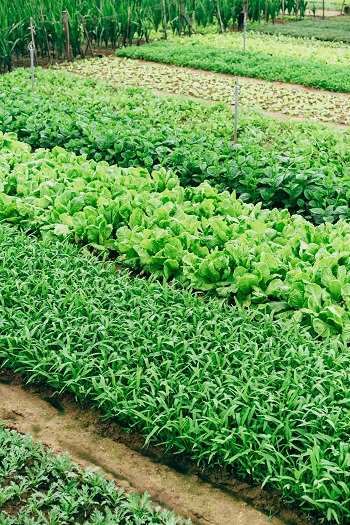
Do your plants keep dropping leaves? Are your plants turning different colors? Both are signs that your plants need help, but fortunately, your gardening methods may not be to blame. When plants exhibit these signs, it’s possible there is an imbalance in the soil that’s harming them. Fortunately, there are several things you can do to improve the state of your soil. Listed below are 11 types of organic fertilizer can be used to improve your soil quality.
Worm Castings (NPK ratio 2-1-1)
Before you do anything, you should test your soil’s pH level. This is a good article that explains how you can test the pH level of your soil. Testing the pH will give you a better understanding of how to improve the acidity. Then, consider using something mild that cannot burn your plants. Earthworm castings are ideal for any organic garden and rich with live biological organisms including:
- Fungi
- Actinomycetes
- Beneficial bacteria
- Pseudo monads
- Plant growth regulators
- Yeasts, molds
- Trace elements
- Ideal NPK ratios
Corn Gluten Meal (NPK ratio 0.5-0.5-1)
Trace amounts of nitrogen, potassium, and phosphate can be found in corn gluten meal, which makes it a good soil stabilizer. The only downside is it works a little bit slower than other organic fertilizers. Add corn gluten meal to your garden in the fall so it has time to break down over the winter months.
Rock Phosphate (NPK ratio 0-5-0)
Fertilizer made from ground up rocks doesn’t sound particularly useful, but you might be surprised by the magic rock phosphate can perform. Rock phosphate contains high levels of phosphate (obviously) as well as other critical nutrients. Most gardeners use this fertilizer because it contains elements that don’t dissolve easily in water.
Cow Manure (NPK ratio 2.5-1.1.5)
You can depend on manure for high amounts of nitrogen, phosphorus, and potassium. It works on gardens at a moderate speed and improves organic compost. If you choose to work with cow manure, keep the following in mind:
- Some weeds will survive being digested by the cows
- Avoid manure from industrial operations as it contains high amounts of salt
- Regular cow manure can burn plants
Chicken/Poultry Manure (NPK ratio 3.5-1.5-1.5)
Poultry manure has higher amounts of the three main nutrients compared to cow manure and often works faster than cow manure. Use poultry manure only after you’ve harvested your crops or before you start a new growing season, and also only in very small amounts. Avoid using too much as this manure will burn plants.
Greensand (NPK ratio 1-1-5)
This organic fertilizer comes from ancient sea beds and is high in calcium. This article explains how to improve your garden soil with greensand. Greensand also contains large amounts of:
- Iron
- Potassium
- Other trace elements
Compost (NPK ratio 2-1.5-1.5)
The nutrients in organic compost vary widely depending on what is initially placed in the compost pile. Typically, it’s often close to cow manure and many people prefer to use compost in their gardens because they can control the nutrients that go into their compost. Compost is popular because it can be made for free and works at a moderate pace. This article explains how to build your own two or three bin compost system.
Soybean Meal (NPK ratio 7-2-0)
High in nitrogen, soybean meal contains low amounts of phosphorus and calcium. The condition of your soil will determine how quickly soybean meal is absorbed but it is an excellent long-term soil conditioner.
Blood Meal (NPK ratio 12-1.5-0.5)
Made from the blood of butchered livestock, blood meal is high in nitrogen and is acidic. When using blood meal, you run a higher risk of burning your plants compared to when you use milder fertilizers such as worm castings.
Bone Meal (NPK ratio 4-20-0)
Made from ground up cattle bones, this fertilizer is high in phosphorus and nitrogen. Use this when you need a fertilizer that works at a moderate speed and when you’re growing:
- Flowering plants
- Bulbs
- Fruit trees
Feather Meal (NPK ratio 12-0-0)
Feather meal contains no calcium or phosphorus and is best suited for use prior to planting. It works at a moderate speed but it will give your soil a nutrient boost during the conditioning process.
Background information for this article was provided by MCB Biomarkers. Visit their website at McgBiomarkers.com.
Related Articles & Free Email Newsletter Sign Up
How Organic Pesticides and Beneficial Insects Can Combine to Eliminate Pests
How to Get Started with Organic Gardening in a Greenhouse




Comment here